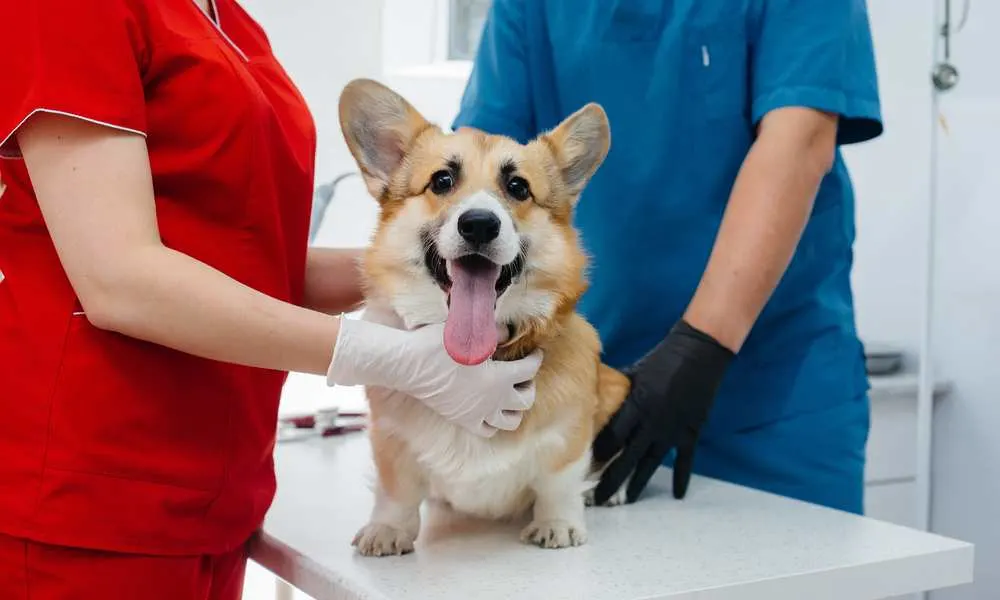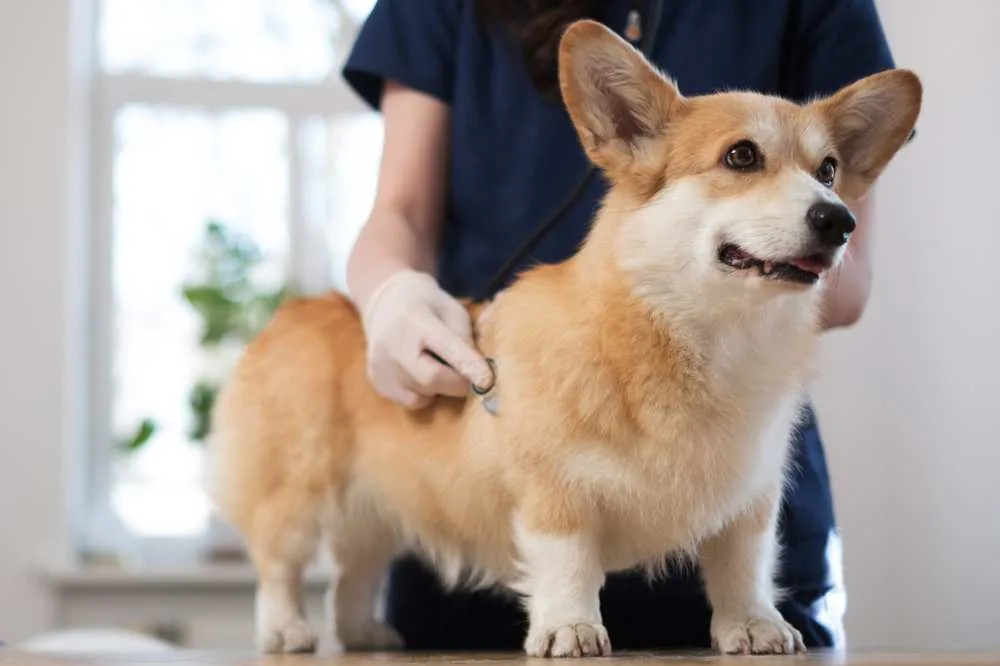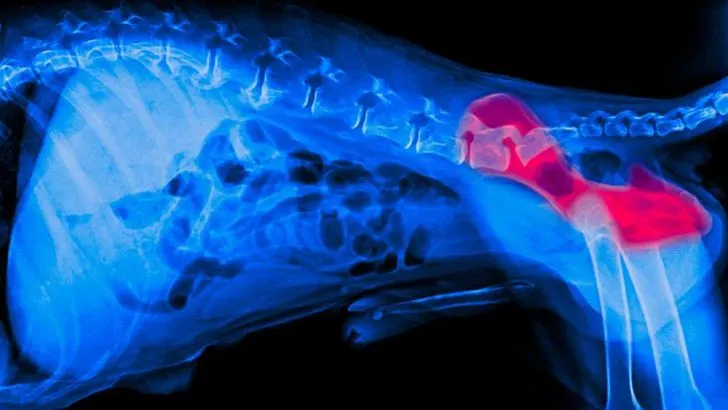In life, there will be difficult times present to all of us. To the best of our knowledge, we must overcome those challenges and learn from any mistakes in the meantime. Corgis have their own set of problems that can negatively affect their lives.
One of the most common issues that corgis have is hip dysplasia. Regarding that, how does Hip dysplasia in corgis affect their overall health?
Regrettably, there are several health-related concerns that corgis will have if hip dysplasia manifests within them.
What are those health-related concerns? How can you detect hip dysplasia in corgis? What will happen if you don’t ascertain this disease in corgis on time? How can you correctly treat hip dysplasia in corgis?
You can’t affect in any shape or form if your corgi starts to develop hip dysplasia, as it’s a genetic deformation. On the other hand, you can educate yourself properly and be prepared to help out your corgis when this disease occurs. Learn how by reading this article!

Do Corgis Get Hip Dysplasia? What Is Hip Dysplasia?
Every dam that successfully gives birth to puppies will provide them traces of its and the male dog counterpart’s genetics. The genetics that all living organisms inherit are responsible for our unique patterns of growth and development.
It’s common sense that if the dog breed is large, the puppies will also grow large. If the dog breed has long fur, the pups will have long fur as well. Unfortunately, genetics aren’t only offering them the good and essential stuff. Sometimes, genetics are responsible for bad things.
Many diseases that occur at birth or in later stages of the dog’s life result from degenerative genetics. Not all dogs will manifest these diseases, but they will have traces of those hazardous traits within them.
Just because one dog generation avoided a particular disease manifestation doesn’t mean that the other generation will also avoid it. One of the most common diseases that can potentially target all dogs is hip dysplasia.
It happens when the dog wasn’t born with the optimal genetic growth of hip joints. These joints are in the shape of a ball located in a socket. Whenever a dog is born with poor quality bones, particularly the bones of the hip, the ball will rub the socket in a lousy manner.
The hip joints should be connected by the ball that smoothly slides from one to the other whenever the dog walks or runs. If the ball or socket, both, or individual doesn’t develop properly, they will unnaturally rub and grind roughly, making the function of hip joints deteriorate.
In most cases, the deterioration of the hip joints will inevitably result in a complete loss of function. So, what does this have to do with corgis? Do corgis get hip dysplasia? All dog breeds, large and small, carry this degenerative genetic within them.
Fortunately for corgis, it’s more common for large and giant dog breeds to be targeted with hip dysplasia. Still, if you suspect that your corgi might have this disease, you will need to take it to your local veterinarian for further examination.
Read Also: Are Corgis Prone To Joint Problems?
Diagnosing Hip Dysplasia In Corgis On Time
Are corgis prone to hip dysplasia, and how can you detect it?
Whenever you see that your corgi starts to behave abnormally, it could mean that hip dysplasia is beginning to manifest. All puppies, including corgis, can develop this disease as soon as they hit the fourth-month age barrier.
Corgis are energetic dogs; they will tend to stay on their feet all day long. If you see that your corgi is laying down more than it usually does for several days straight – it could mean that hip dysplasia is starting to kick in.
Most signs of hip dysplasia in corgis are noticeable when your corgi starts to move in an odd fashion, resembling a form of bunny hopping. If you notice that your corgi is swaying when it walks or runs, it might mean that hip dysplasia is starting to occur.
Every corgi needs lots of fresh air and exercise to maintain its muscles from deteriorating. Taking corgis every day for a walk can get pretty painful for them if their joints in the hip are starting to malfunction. Corgis should never experience that kind of pain.
It’s essential to listen to your corgis at all times and help them out whenever you can. Take your corgi to your local veterinarian so that he can thoroughly examine what is wrong with your pup. In most cases, hip dysplasia is easily spotted with a simple x-ray scan.
The treatment for this disease differs from case to case.
Many things affect what treatment your corgi will need to have, like the age of your corgi and the degree of the development of hip dysplasia. If you realize early on that your corgi is in pain and the veterinarian determines that it has hip dysplasia, physical therapy will be enough.
As time passes and you don’t register that this disease is evolving, the treatment necessary for corgis’ recovery will be more complicated. In most cases, restricting your corgi from doing some exercises and offering them less food will do the trick.
Many medications and joint supplements will be necessary if your corgi is in pain, no matter what stage of hip dysplasia it is in. Unfortunately, sometimes this disease can get so bad that surgical treatment will be necessary for your corgi.
Total hip replacement is a devastating thing to hear as a corgi owner, but you need to realize that if it’s necessary, then it must be done. The health of your corgi must be at the top of your priorities all the time. Give your consent and pray for the best if it needs surgical treatment!
Do Corgis Have Bad Hips?
It’s a common question that I get asked regularly from my friends.
As it turns out, all dogs will start with good hips but can develop hip dysplasia on rare occasions. The same goes for corgis; as soon as you notice that your pup is having some difficulty walking, start with the treatment.
When dealing with this disease, corgis will be less mobile than they would prefer, potentially resulting in other conditions. Every corgi that can’t normally walk or run without experiencing pain in the hips will tend to remain low and lay down.
If corgis don’t fulfill their daily exercise requirements, they might even become depressed. They are cheerful pets that need to stay on their feet, constantly searching for stuff to do and obstacles to overcome. Take that away from them, and they might become gloom.
How Common Is Hip Dysplasia In Corgis?
Many people even ask me how common is hip dysplasia in corgis. Unfortunately, there is no universal answer to that question – there are no two same corgis in this world.
Every corgi is a story on its own and needs to be equally treated with care so that it doesn’t develop this condition. From the first minute that a corgi gazes upon you, you will need to treat it with lots of care.
Corgis’ daily diet largely affects whether a corgi will develop hip dysplasia. There is a thin line for corgis between being fat and obese. Every corgi that steps into the realm of obesity will undeniably be a step closer to manifesting hip dysplasia.
Like with all things in life, overachieving can have adverse side effects like underachieving. Any excess stress that a corgi puts on its bones will be detrimental when discussing hip dysplasia.
You need to make sure that you don’t allow your corgis to exercise more than they should. Their bones and muscles will deteriorate quickly if you put them in a situation where they can run constantly. Corgis need to learn to rest whenever they feel tired.
As the owner of a corgi, you need to teach it to behave appropriately at all times. A moderate amount of exercise daily is more than enough for corgis to maintain proper posture. Any more than that can lead to deteriorating hip joints.
All dogs that have undergone a complete hip replacement will need to learn to take it easy from then onward, especially corgis. A hip replacement is there to allow the corgis to continue with their life healthily. They mustn’t rush things after any surgical interventions!
Learn More: Genetic Diseases In Corgis – Which Diseases Corgis Are Prone To?

Hip Dysplasia In Corgis – Final Thoughts
Stay at the top of your game whenever your corgi needs some help. Many diseases are lurking around every corner, waiting for the perfect time to strike your dog. On that note, people often ask me about hip dysplasia in corgis. Do corgis have hip problems?
No matter if it’s large or small, every dog can develop hip dysplasia, including corgis. When the time comes to celebrate their fourth month, you will need to start to observe their behavior, as hip dysplasia starts to occur at that time.
You will need to be extra cautious when feeding your corgi. Offering your corgis with too much food can lead to obesity, which can then lead to hip dysplasia. On top of that, if you allow your corgi to exercise constantly, you will potentially unintentionally damage their hip joints.
Make sure that you are on a close call with your local veterinarian. Sometimes, it’s a matter of seconds before hip dysplasia starts to spread like a disease to other parts of your corgi. Be considerate and stay close to your corgi!
Learn More: Corgi Health Problems: Most Common Diseases In Corgis


